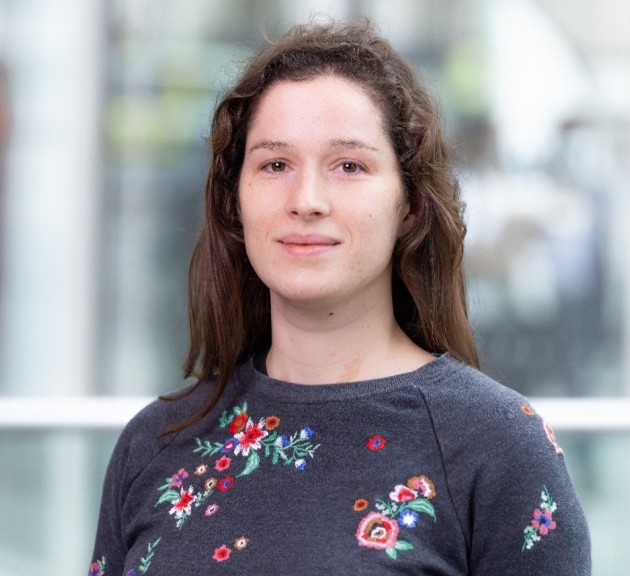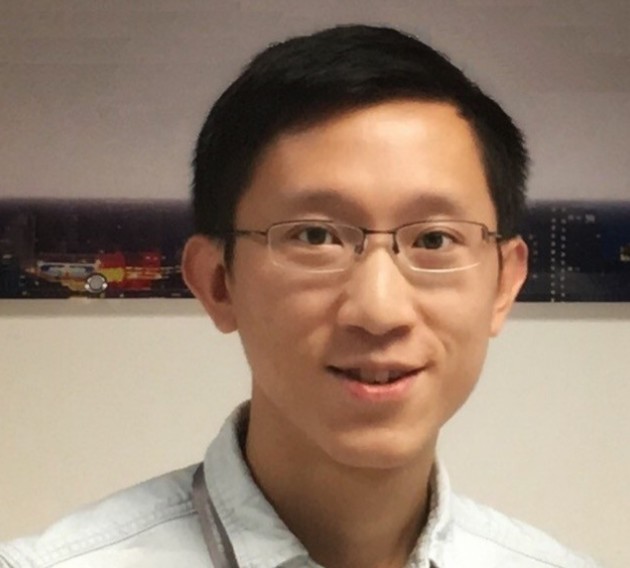Department of Materials announces new funding to support postdoctoral research

The Department of Materials has introduced a new funding opportunity to support postdoctoral researchers moving to the next stages of their careers.
Three successful postdoctoral researchers in the Department of Materials have been awarded a new seed fund to develop their research for one year. The funding will allow the successful applicants to develop their research independence in preparation for fellowship applications.
The first awardees of the fund were announced as Dr Hang Xu, Dr Bethan Davies, and Dr Ho-Cheung Ng.
This fund will allow successful applicants to produce a proof of concept for their innovative ideas. Dr Stella Pedrazzini Departmental PDRA and Fellows Champion
Dr Stella Pedrazzini, Departmental PDRA and Fellows Champion, commented: “I am delighted to be presenting this new departmental initiative to support our postdocs career development.
This fund will allow successful applicants to produce a proof of concept for their innovative ideas, and thereby enable outstanding post-docs to have a better chance of securing a fellowship.”
A second call for applications will be announced in March 2022.
Dr Hang Xu
 Dr Hang Xu is a Research Associate in the Department of Materials. He is supervised by Professor Minh-Son Pham, and his research focuses on new meta-materials that can move or change shape. Meta-materials are artificially designed to achieve new properties not available in natural materials thanks to structure rather than composition.
Dr Hang Xu is a Research Associate in the Department of Materials. He is supervised by Professor Minh-Son Pham, and his research focuses on new meta-materials that can move or change shape. Meta-materials are artificially designed to achieve new properties not available in natural materials thanks to structure rather than composition.
Atrial fibrillation is the most common heart rhythm disturbance, affecting one million people in the UK. Dr Xu is currently applying meta-material for catheter development with precisely controlled wires. He hopes to use the funding for a research project to develop meta-materials that can construct expandable catheters at millimetre-scale with high performance and low cost for Atrial Arrhythmias Treatment.
Dr Xu plans to use the funding to develop the next-generation balloon catheter constructed by deployable meta-materials. In this project, novel meta-materials will provide precise motions, improving the accuracy of electrical signal collection. The new balloon catheter with precisely controlled morphing tips can save surgical time, improve the surgical success rate, and decrease medical costs.
Dr Bethan Davies

Dr Bethan Davies is a Research Associate in the Department of Materials. She is supervised by Dr Ifan Stephens, and her research focuses on energy transition and the sustainable synthesis of organic chemicals from renewable resources using renewable energy.
She also applies this knowledge to study reactions occurring in lithium-ion batteries to understand chemical degradation mechanisms that limit battery life and compromise safety.
Dr Davies plans to use the funding to initiate her project on the electrochemical synthesis of ethylene glycol from renewable materials that can be used directly as a fuel. Ethylene glycol is a commodity chemical currently produced from petroleum resources.
The project will involve a collaboration between researchers from the Department of Materials and the Department of Chemical Engineering at Imperial College London and the University of Cambridge to understand both experimental and theoretical simulations.
Dr Ho-Cheung Ng

Dr Ho-Cheung Ng is a Research Associate in the Department of Materials, and he is supervised by Professor Molly Stevens. He is currently applying deep learning techniques and mobile phones with Cloud computing to capture and analyse readouts of lateral flow tests. This helps minimise human error and allows the surveillance of infectious diseases, such as COVID-19.
The project will also address a critical prior step of genomic data analysis is short read mapping, where millions of short DNA fragments from a patient are aligned to the human reference genome. This enables the identification of nearly all genes potentially relevant to that patient’s disease. However, NGS technology is improving much faster than current computing technologies, such as CPU, the time required to do short read mapping is restrictive.
Dr Ng plans to use the funding to accelerate short read mapping based on advanced FPGA (Field Programmable Gate Array) technology. FPGA is an integrated circuit similar to CPU, yet it offers greater flexibility as the circuit can be reconfigured even after manufacturing. The final solution will be deployed on the Amazon Cloud and available for public use. More importantly, this work will provide a foundation for the next phase of high-performance alignment research on the Cloud.
Article text (excluding photos or graphics) © Imperial College London.
Photos and graphics subject to third party copyright used with permission or © Imperial College London.
Reporter
Kayleigh Brewer
Department of Materials